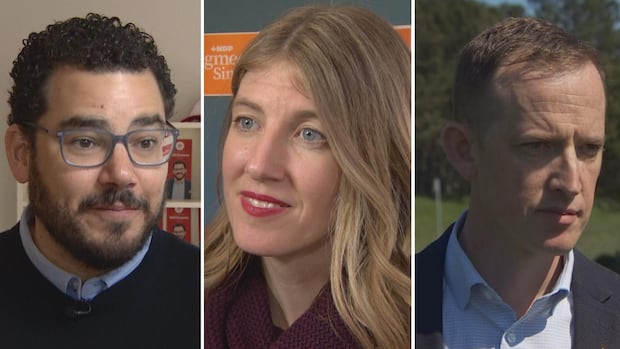The New Democrats have held the federal riding of Victoria for the last 20 years, but the Liberals hope it will turn red.
Recent political polls show that nearly every seat on the Island, including Victoria, could change hands as the trade war with the United States has become a key issue for voters.
“It really makes the Island a fascinating place to watch,” said Michael Prince, the University of Victoria’s acting dean of human and social development.
The other Island riding is held by Green Party co-leader Elizabeth May in Saanich-Gulf Islands.
The Greens were dealt a blow last week when the party was dropped from the French and English language debates after failing to meet the candidate requirement.
The Liberals have been shut out of the Island since 2011 when Liberal MP Keith Martin, who represented Esquimalt-Juan de Fuca, retired.
He said the Liberals see Victoria as a riding they can pluck from the NDP.

NDP MP Laurel Collins has held the Victoria riding since 2019 and is hoping for a third term.
“Here in Victoria we have been sending New Democrats to Ottawa for the past two decades,” she said.
Collins highlighted the accomplishments of a “small group of New Democrats” who were able to bring about change through the supply-and-confidence agreement with Justin Trudeau’s Liberal government, delivering on pharmacare, dental care and affordable child care.
Federal politics is shifting wildly in B.C., with traditional NDP support disappearing. CBC’s Lyndsay Duncombe breaks down what’s behind the voter shift and what it could mean for the Liberals and Conservatives in this federal election.
B.C. Premier David Eby acknowledged that this is going to be “a challenging election for the federal NDP,” but encouraged voters to re-elect incumbents like Collins, whom he called a “fighter for British Columbians.”
Liberal candidate Will Greaves, associate professor of international relations at the University of Victoria, is hoping to unseat Collins.
“There’s no question that there are voters who in the past have supported other parties besides the Liberal Party who are giving us a lot of consideration because of the circumstances with the United States and what it means for the economy,” Greaves told CBC News.
Greaves said people in his riding are also concerned about climate and environment issues “and they understand what a Conservative government would mean for those priorities.”
Both Liberal Leader Carney and Conservative Leader Pierre Poilievre have promised to fast-track the country’s natural resource projects through shorter approval processes.
Asked how Carney’s promise is compatible with environmental sustainability, Greaves said “the emphasis of a Carney-led government would be on investments in growing a clean economy and the clean-energy sector first and foremost.”
The Green candidate in the riding, lawyer Michael Doherty, has been making a pitch to voters that environmental sustainability is the common thread that should run through all government decision-making.
Conservative candidate Angus Ross, a former police officer, says voters he’s talked to are most concerned about affordability, homelessness and open drug use.
“We heard a lot at the doors in the first week of the election — Trump, Trump, Trump — and now that’s gone away, people are back onto the affordability side. They’re saying whatever is happening down there is not as big of an issue as the cost-of-living crunch,” said Ross, adding that the Conservative party will deliver tax cuts that will allow people to keep more of their hard-earned money.
The Conservative Party has faced internal criticism over its handling of the tariff file.
Prince said Trump’s trade war and Canada’s response has dominated the political discourse and upended an election which last year seemed like a sure bet for Poilievre’s Conservatives.
“This isn’t a typical election,” he said.

